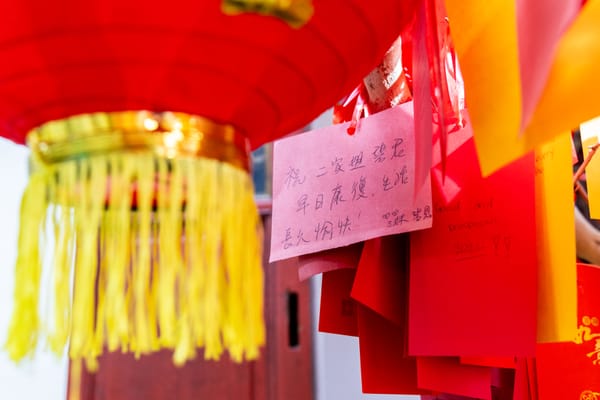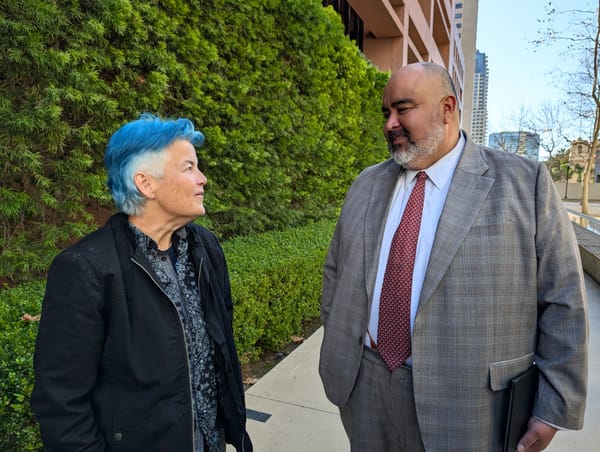Mutual aid moves away from airport as border crossings decline
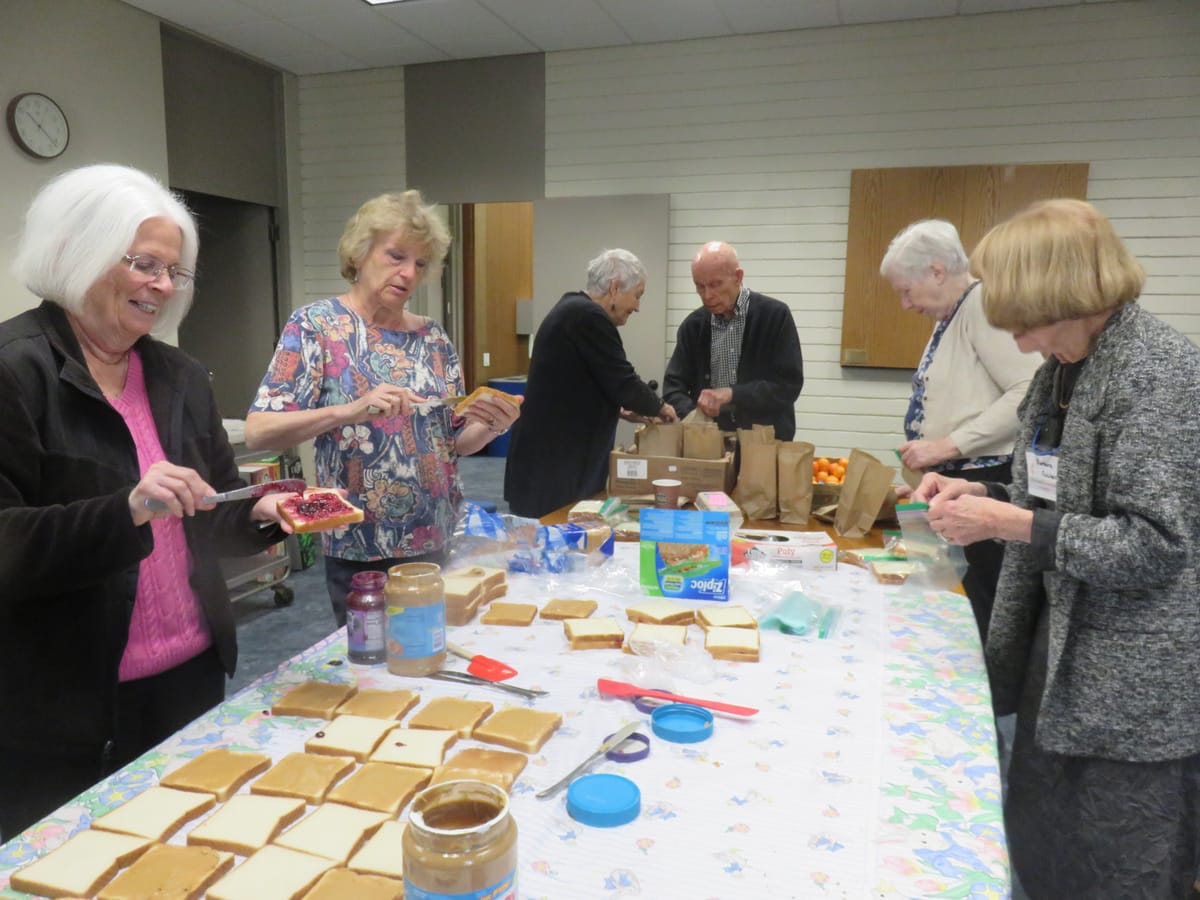
Since border crossings have dropped and the Trump administration has moved to detain more of those who do come, mutual aid group We All We Got SD has stopped bringing meals to the airport.
Written by Kate Morrissey, Edited by Lauren J. Mapp
For roughly a year and a half, mutual aid volunteers brought meals to the San Diego airport every day to distribute to waiting migrants.
From September 2023 through the end of March of this year, We All We Got SD fed thousands of people who passed through the airport as part of their journey to find safety, family and a new life in the United States, according to volunteer Krystle Johnson.
At its height, Johnson estimated that the volunteers fed about 300 people a day.
But border crossings have slowed considerably, and the Trump administration has cut off most access to asylum requests at ports of entry. The airport no longer has dozens of migrants in its hallways every day waiting either for someone to buy their tickets or for their time to go through security.
As a result, We All We Got SD has found other local food distributions to support. Volunteers still make about 50 sandwiches a day, Johnson said.
“All of that food and water, we didn't want to go to waste,” Johnson said. “We reconnected all of these sandwiches to different groups that go to different parts of San Diego.”
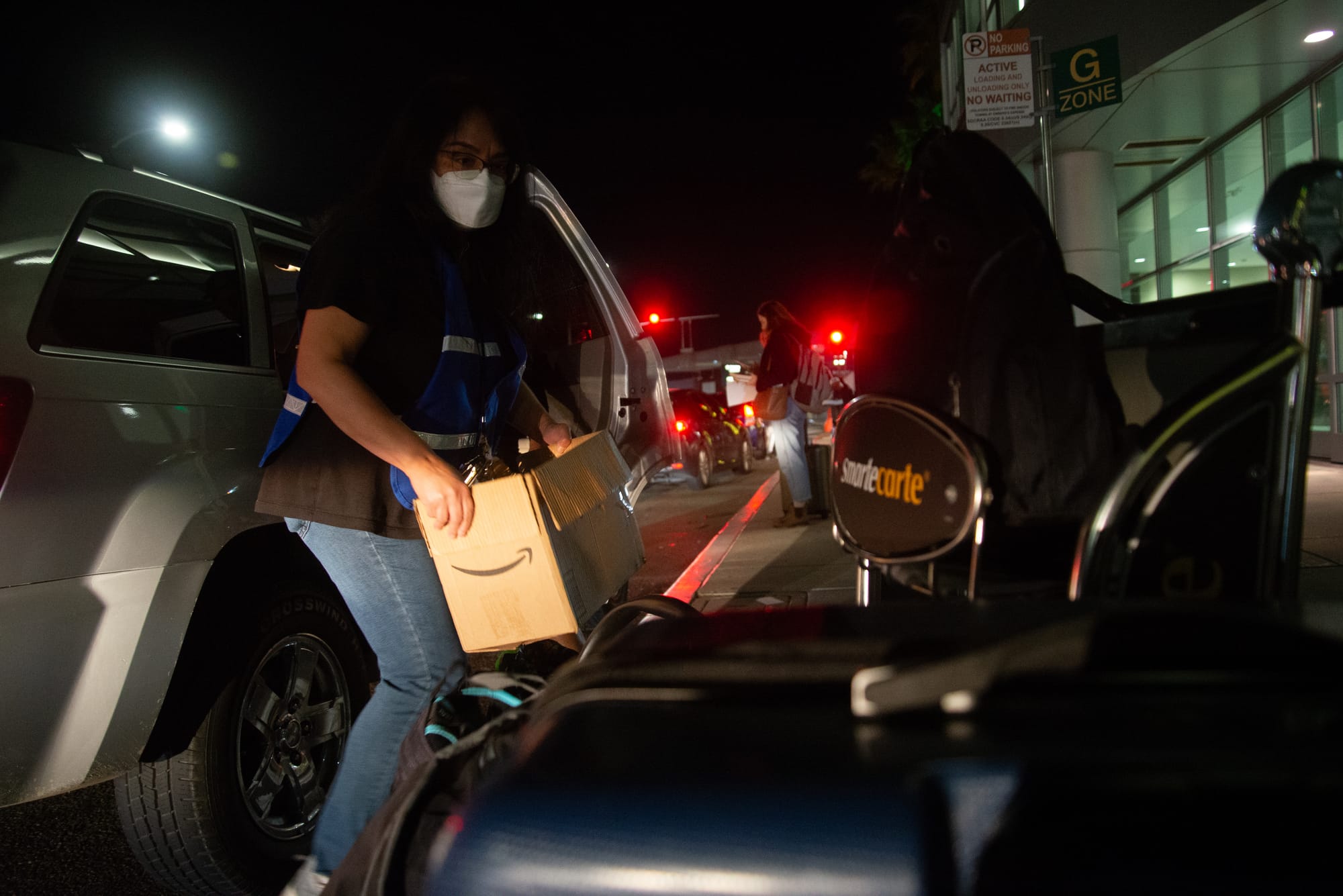
That includes Bread Bloc, which distributes food in downtown San Diego on Tuesdays, and Shared Plate, which offers food in Escondido on Thursdays. We All We Got SD also hosts a distribution twice a month in City Heights.
Even after the supplies that would have gone to the airport had been redistributed, some volunteers decided to keep making sandwiches, Johnson said.
“I think mutual aid has really grown just kind of as a result over the past couple of years of people seeing the value in volunteering their time and seeing themselves a little bit more as part of the community,” Johnson said. “We are all part of this community, and we all have to contribute something to keep it going. It might mean I give a little bit, you give a little bit, and when we need help, someone will be there to help us.”
Johnson said some of the volunteers are still in touch with migrants whom they helped at the airport, and the group has also been devoting time to finding ways to support those migrants in their current situations.
Some have ended up in immigration detention facilities under the Trump administration. Many are scared about what might happen to them or to their families.
Many of the migrants helped by We All We Got SD entered the U.S. through a phone app called CBP One that the Biden administration used to give out appointments to people wanting to request asylum at ports of entry.
President Donald Trump canceled those appointments on his first day in office, and more recently, many who entered with those appointments have received emails telling them that they no longer have permission to be in the country and that they must leave immediately.
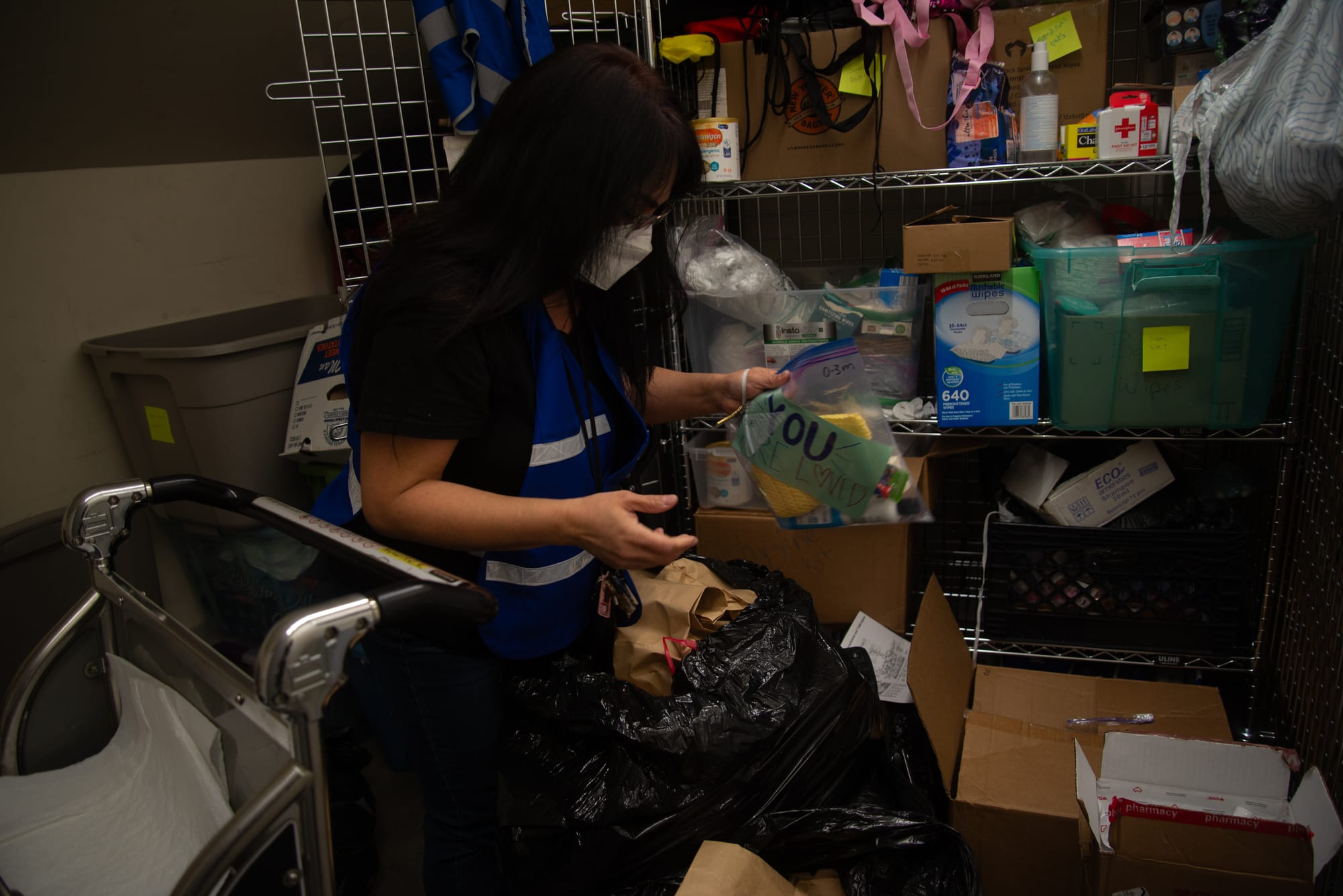
“It's important to kind of acknowledge that it's really hard to know what to do right now just because things change from day to day, and it's purposefully difficult to get in contact and support migrants right now because of the fear surrounding day to day living and the worry that they're going to be picked up by ICE,” Johnson said, using the abbreviation for Immigration and Customs Enforcement.
She said that U.S. residents wanting to help can educate themselves and get involved in local patrols that alert community members to immigration enforcement activity.




